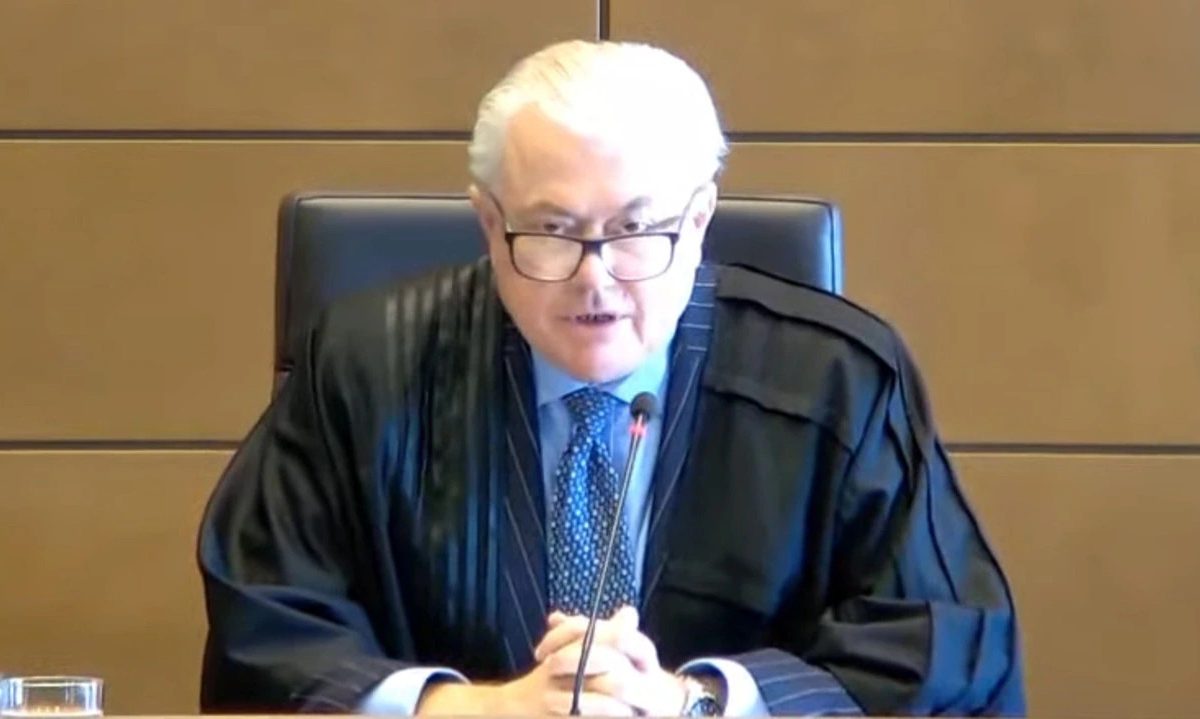
IT is a pity that only seven people, comprising two members of the family of the deceased, a journalist, myself and three others attended the recent inquest into the death, by drug overdose at the AMC, of inmate Mark O’Connor.

Mr O’Connor died after taking a combination of ice, buprenorphine and an antipsychotic drug, all of which it is assumed he obtained from the AMC’s active black market. His death is a tragedy.
The hearings provided an interesting and uncensored insight into the raw reality of life as a drug-using prisoner in Canberra’s so called human rights, rehabilitation-focused prison. It is a pity that no senior members of the ACT public service or members of the Assembly were in attendance.
On the second day of hearings, the pre-sentence reports of Mr O’Connor and his cellmate were examined. What these revealed was that both Mr O’Connor and his cellmate had long histories of substance misuse and that neither had successfully engaged in rehabilitation programs, including while detained at the AMC.
It was noted that while the cellmate had a drug addiction he was not at the time of the death of Mr O’Connor a sentenced prisoner so did not have a case plan or access to rehabilitation for dealing with his addiction.
An issue raised was whether it was usual or desirable for two drug-dependent inmates, neither of whom was engaging with a drug rehabilitation program, to be placed in the same cell. The coroner was told that the decision was not based on “rehabilitation need” but was a custodial management decision.
However, no evidence was advanced about precisely which custodial management priority informed the decision to house drug-addicted detainees together. It may, of course, simply be that there are so many detainees with a drug addiction that there is no other option.
The cellmate was advised by the coroner of his rights in relation to the giving of evidence that might incriminate him and asked him if he had been offered legal assistance. The cellmate responded that he had not been offered legal assistance. That is clearly unacceptable.
The cellmate was asked by counsel for the ACT government, as he began his evidence, if he could recall the day on which Mr O’Connor died and describe what sort of day it was.
He answered that it was a normal day which he described in the following way: “We were locked in the cell all day except for the one hour a day that we get off. It was a normal day – just like any other day.”
It was noted as an aside by counsel that a consequence of locking two inmates with a chemical dependency in a cell for 23 hours a day, day after day, was that it might stimulate their desire to access drugs to help get through the day. It would have been instructive had this line of questioning been pursued.
One other aspect of the evidence presented by the cellmate was interesting. Video footage, which must have been deeply distressing to Mr O’Connor’s family, was shown of the attempts made by corrections officers to revive Mr O’Connor with CPR after his collapse from the drug overdose.
During the CPR, which involved four or five officers, the cellmate is seen bending over Mr O’Connor. He appeared, however, to be interrupted by corrections officers and directed to an adjacent cell.
When asked by counsel what he was doing in the video he said that he was attempting to provide mouth-to-mouth resuscitation to his cellmate because he was aware that corrections officers had adopted a policy of not undertaking mouth-to-mouth on detainees.
Coincidentally, at the time of the coronial hearings a gaggle of members of the Legislative Assembly, for reasons not entirely clear to me, publicly disclosed their personal use of illicit drugs.
This included the Minister for Justice and Minister for Corrective Services, Mr Shane Rattenbury, and City Services Minister Mr Chris Steel who were reported as having confessed to the possession and use of MDMA, known as ecstasy.
These are serious criminal offences. Under the relevant ACT legislation, most notably the Drugs of Dependence Act 1989, they carry a maximum penalty of three years’ imprisonment.
That the minister responsible for the administration of justice, the operation of the prison and management of prisoners in the ACT, including a cohort of prisoners who have been imprisoned for committing a drug offence, including potentially the same as that he has admitted to committing himself, raises serious questions of principle and propriety.
Call me old fashioned, but I believe that Mr Rattenbury, the minister with primary responsibility for maintaining the rule of law in the ACT, needs to reflect on whether he should, in all conscience, continue in his present role.
The question is not whether the law he breached is a bad law or that his offending occurred when he was young and silly. It is not even the breathtaking hypocrisy flowing from the fact that as Minister for Corrections he is responsible for the implementation of policies that result in people who conceivably did little more than he has admitted to doing being locked in cells for 23 hours a day. It is about respect for the law and the rule of law and ministerial responsibility.
The least that Mr Rattenbury could do in light of his revelations is drop into the City Police Station and volunteer to make a formal statement.
Who can be trusted?
In a world of spin and confusion, there’s never been a more important time to support independent journalism in Canberra.
If you trust our work online and want to enforce the power of independent voices, I invite you to make a small contribution.
Every dollar of support is invested back into our journalism to help keep citynews.com.au strong and free.
Thank you,
Ian Meikle, editor




Leave a Reply